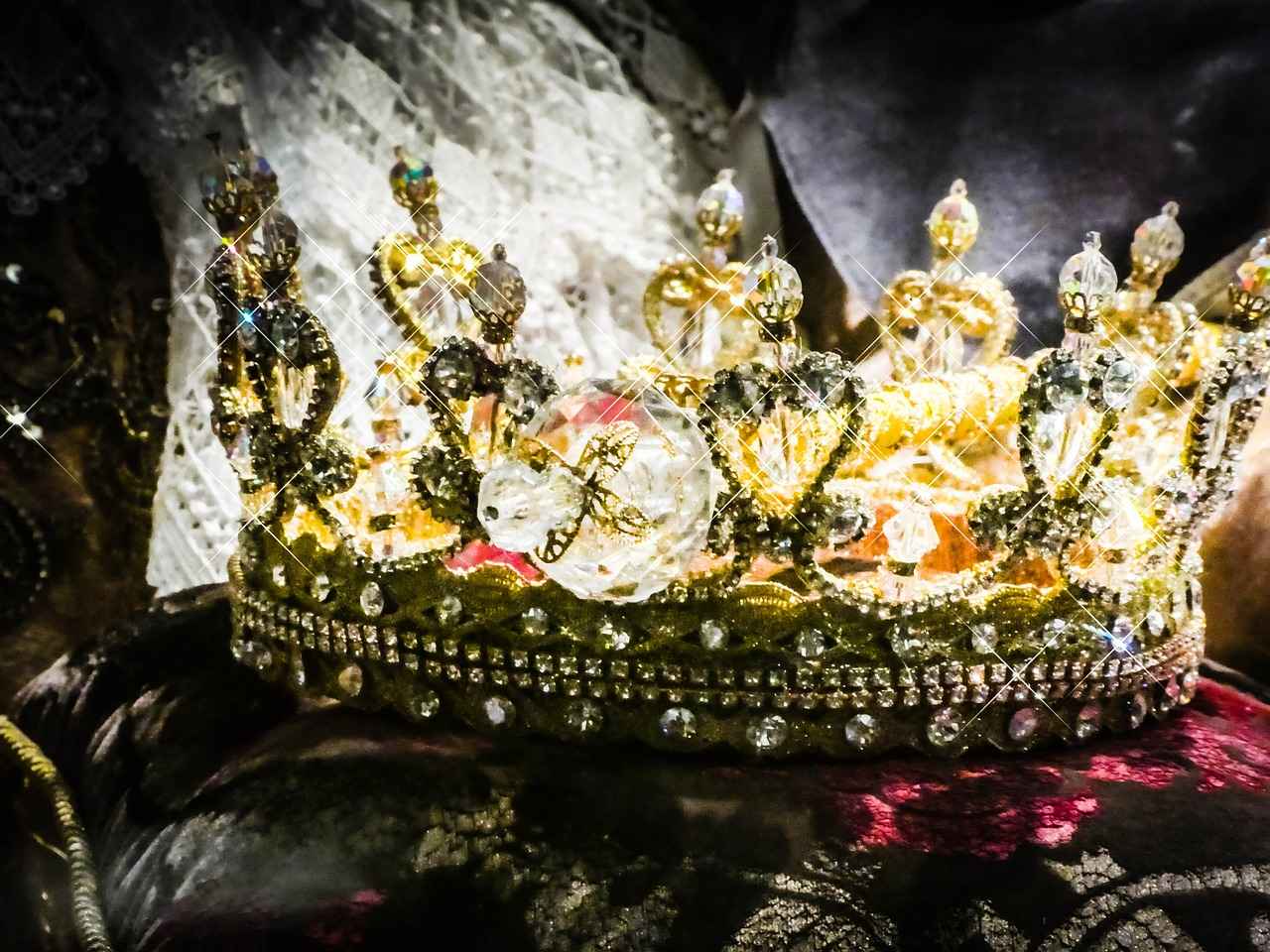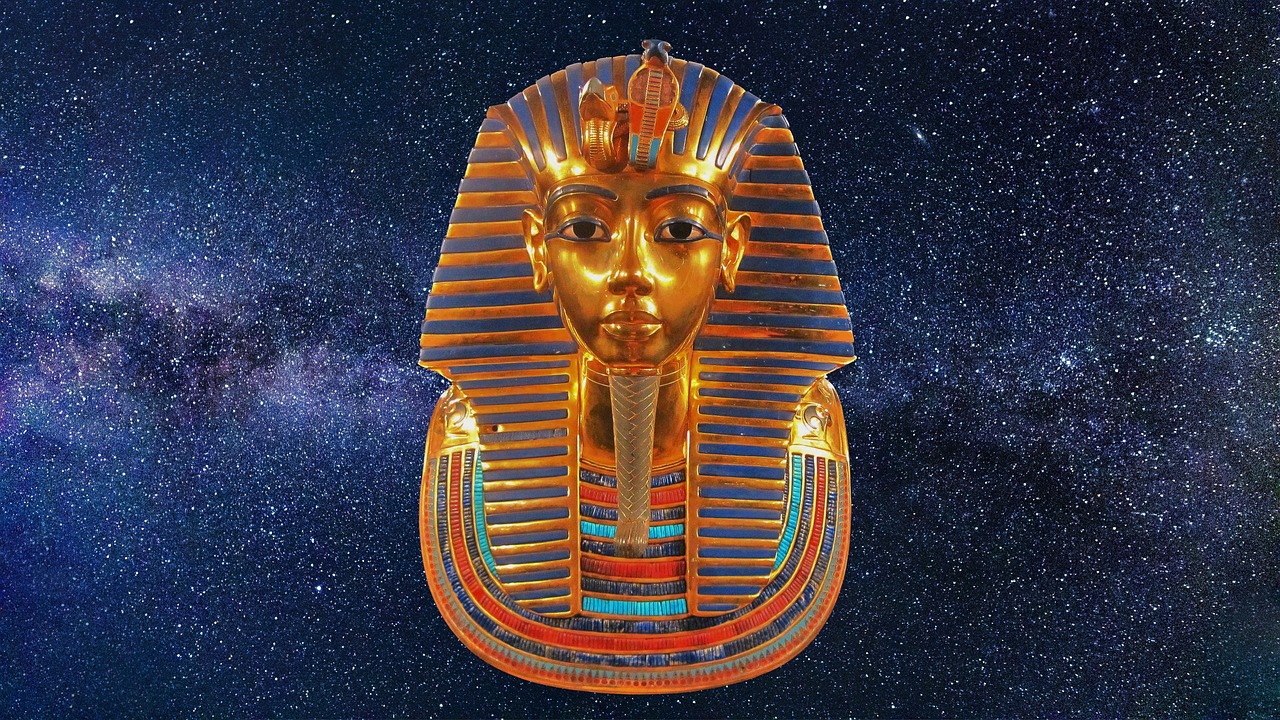This article explores the enigmatic character of Rei Ayanami, a pivotal figure in the iconic anime series Neon Genesis Evangelion. With her unique origins and complex relationships, Rei embodies profound philosophical themes that resonate deeply with audiences. Understanding her character allows viewers to engage with the series on a more meaningful level.
The Origins of Rei Ayanami
Rei Ayanami’s origins are shrouded in mystery, making her character even more intriguing. Created as a clone, she is deeply connected to the entity known as Lilith. This connection raises questions about the nature of her existence and the ethical implications of cloning within the narrative of the series.
The Role of Rei in the Narrative
Rei serves as a crucial link between various characters, particularly Shinji Ikari. Her interactions with him and others contribute significantly to the overarching themes of identity, connection, and the human experience in a chaotic world.
- Rei and Shinji: A Complex Relationship – Their dynamic is a reflection of loneliness and the search for meaning.
- Contrasting Rei with Asuka – The differences between Rei and Asuka Langley Soryu enhance the narrative tension.
Rei’s Symbolism in Evangelion
Rei embodies themes of rebirth, sacrifice, and the essence of existence. Her character challenges viewers to reflect on the nature of humanity and what it means to truly live.
Philosophical Themes Surrounding Rei
Rei raises existential questions about identity and the self. Her character blurs the lines between human and machine, prompting discussions about consciousness and empathy.
Rei Ayanami’s Impact on Pop Culture
Rei has become an icon in pop culture, influencing other media and generating a dedicated fanbase. Her character design and traits have inspired numerous anime characters, solidifying her legacy in the genre.
In conclusion, Rei Ayanami is not just a character but a symbol of deeper philosophical inquiries. Her journey in Neon Genesis Evangelion invites viewers to explore their own understanding of identity, humanity, and existence.

The Origins of Rei Ayanami
Understanding the origins of Rei Ayanami is essential for unraveling the complexities of her character in Neon Genesis Evangelion. Born from a unique blend of science and mythology, Rei’s creation is deeply intertwined with the series’ overarching themes of identity, existence, and the human condition.
Rei is a clone, created from the genetic material of Lilith, a key figure in the series’ lore. This connection to Lilith not only shapes her physical attributes but also imbues her with a sense of purpose and existential significance. As a product of experimentation, Rei embodies the struggle between humanity and artificiality, prompting viewers to question the essence of what it means to be truly alive.
Her existence raises profound questions about identity and self-awareness. Unlike traditional characters, Rei’s life is a series of rebirths, each iteration reflecting different aspects of her personality and emotional depth. This cyclical nature of her being invites audiences to explore the implications of her existence within the narrative framework of the series.
Moreover, Rei’s interactions with other characters, particularly Shinji Ikari, reveal the complexities of human relationships and the search for connection in a world filled with chaos. As a mirror to Shinji’s struggles, she serves as both a catalyst for his growth and a reflection of his inner turmoil.
In conclusion, Rei Ayanami is not merely a character but a profound symbol of the existential questions that Neon Genesis Evangelion poses. Her origins, rooted in both science and mythology, challenge viewers to contemplate the nature of existence, identity, and the essence of being human.

The Role of Rei in the Narrative
Rei Ayanami stands out as a central figure in the intricate tapestry of Neon Genesis Evangelion. Her interactions with various characters not only shape her own identity but also reflect the series’ exploration of humanity and self-discovery. Within the narrative, Rei serves as a mirror, reflecting the struggles and complexities of those around her, particularly Shinji Ikari.
Rei’s relationship with Shinji is particularly noteworthy. Their complex dynamic illustrates themes of connection and isolation. As Shinji grapples with his own feelings of inadequacy and loneliness, Rei becomes a source of both comfort and confusion. She embodies the search for meaning in a world rife with chaos, prompting Shinji to confront his own fears and desires. This interaction underscores the series’ emphasis on the importance of relationships in understanding oneself.
Furthermore, Rei’s character serves as a contrast to Asuka Langley Soryu, another pivotal character in the series. While Asuka is outspoken and brash, Rei is quiet and introspective. This juxtaposition not only enhances the narrative tension but also deepens the exploration of identity within the series. Asuka’s fiery nature often clashes with Rei’s calm demeanor, highlighting different coping mechanisms in the face of trauma and existential dread.
In essence, Rei Ayanami’s role is not merely to support the plot but to embody the themes of identity, humanity, and the quest for connection. Her presence challenges both the characters and the audience to reflect on what it means to be human in a world where the lines between humanity and artificiality are increasingly blurred. Through her interactions, Rei invites us to ponder our own existence and the relationships that define us.
Rei and Shinji: A Complex Relationship
The relationship between Rei Ayanami and Shinji Ikari is one of the most intricate dynamics explored in Neon Genesis Evangelion. Their interactions serve as a lens through which we can examine profound themes such as connection, loneliness, and the quest for meaning in a world that often feels chaotic and disjointed. This complexity is not merely a backdrop; it is essential to understanding their characters and the overarching narrative of the series.
Initially, Rei appears to be a mysterious and detached figure, embodying a sense of calmness that contrasts sharply with Shinji’s emotional turbulence. However, as the series progresses, it becomes evident that Rei’s existence is deeply intertwined with Shinji’s struggles. Their relationship reflects a dual journey of self-discovery, where each character acts as a mirror for the other’s insecurities and desires.
One of the key elements of their relationship is the theme of loneliness. Both characters grapple with feelings of isolation—Shinji, often feeling abandoned by his father and peers, and Rei, who struggles with her own identity and purpose. This shared sense of alienation creates a bond between them, as they seek solace in each other’s company. Their interactions are often charged with unspoken emotions, revealing a profound connection that transcends mere friendship.
Moreover, the dynamic between Rei and Shinji highlights the search for meaning in a fractured world. Shinji’s journey is marked by his attempts to understand his own existence and that of those around him. Rei, as a being created from the remnants of Lilith, represents the existential questions that plague Shinji. Through their evolving relationship, the series prompts viewers to reflect on the nature of human connections and the significance of understanding oneself in relation to others.
In conclusion, the relationship between Rei and Shinji is a complex tapestry woven with themes of connection, loneliness, and the quest for meaning. Their interactions provide a profound commentary on the human experience, making them one of the most compelling aspects of Neon Genesis Evangelion.
Rei as a Reflection of Shinji
Rei Ayanami serves as a profound mirror to Shinji Ikari, reflecting his inner turmoil and struggles throughout the series. Their complex relationship is pivotal in understanding the themes of identity, loneliness, and the quest for meaning in a fractured world. This analysis explores how Rei’s character not only influences Shinji’s journey but also acts as a catalyst for his personal growth.
Initially, Rei appears as an enigmatic figure, embodying a sense of detachment and mystery. Her interactions with Shinji often evoke feelings of confusion and curiosity. As the series progresses, it becomes evident that Rei’s existence is intricately linked to Shinji’s emotional development. She challenges him to confront his own fears and insecurities, pushing him towards self-discovery.
One of the most significant aspects of their relationship is the way Rei embodies Shinji’s struggles with acceptance and self-worth. Her calm demeanor contrasts sharply with his emotional volatility, providing a counterbalance that encourages him to reflect on his own actions and motivations. For instance, during moments of crisis, Rei’s unwavering presence serves to ground Shinji, prompting him to reconsider his choices and the impact they have on those around him.
Moreover, Rei’s journey of self-realization parallels Shinji’s own. As she gradually becomes more aware of her identity and purpose, Shinji is similarly compelled to confront his own existential dilemmas. This mirroring effect not only deepens their connection but also highlights the broader themes of humanity and connection that permeate the series.
In conclusion, Rei Ayanami’s role as a reflection of Shinji Ikari is essential to understanding the character dynamics within Neon Genesis Evangelion. Through her influence, Shinji embarks on a transformative journey, ultimately leading to a greater understanding of himself and his place in the world. Their relationship serves as a poignant reminder of the complexities of human emotions and the importance of connection in the face of adversity.
Contrasting Rei with Asuka
In the intricate tapestry of Neon Genesis Evangelion, the characters Rei Ayanami and Asuka Langley Soryu serve as compelling foils to one another. Their contrasting personalities and backgrounds not only enhance the narrative tension but also deepen the thematic explorations of the series.
Rei Ayanami is often depicted as calm, reserved, and enigmatic. Her stoic demeanor and lack of emotional expression create an air of mystery around her character. In contrast, Asuka Langley Soryu is vibrant, headstrong, and emotionally volatile. This stark difference in personality leads to a dynamic interplay that captivates the audience.
- Backgrounds: Rei’s origins are shrouded in secrecy, being a clone created from the DNA of Lilith, while Asuka comes from a more traditional human background, raised in Germany by a strict mother. This contrast shapes their worldviews and interactions with others.
- Emotional Expression: Rei’s emotional restraint often leaves her isolated, making her journey one of self-discovery and understanding of human emotions. Asuka, on the other hand, wears her heart on her sleeve, often leading to conflicts with others, especially with Shinji.
- Thematic Depth: The juxtaposition of Rei and Asuka highlights themes of identity, connection, and the struggle for acceptance. While Rei represents the quest for understanding one’s purpose, Asuka embodies the fight for recognition and validation.
This contrast not only enhances the narrative tension but also invites viewers to reflect on their own perceptions of humanity and connection. As the series progresses, the evolution of both characters reveals profound insights into the nature of self and the complexities of interpersonal relationships.
Ultimately, the relationship between Rei and Asuka serves as a microcosm of the broader themes within Neon Genesis Evangelion, making them integral to the series’ lasting impact.
Rei’s Symbolism in Evangelion
Rei Ayanami is a character shrouded in mystery and complexity within the anime Neon Genesis Evangelion. Her presence is not merely a narrative device but a profound embodiment of various symbolic elements that resonate deeply with the themes of the series. This section explores how Rei represents sacrifice, rebirth, and the intricate nature of existence.
One of the most significant aspects of Rei’s character is her connection to the theme of sacrifice. Throughout the series, she is portrayed as a being created for the purpose of serving others, often putting her own needs aside for the greater good. This selflessness is poignantly illustrated in her interactions with other characters, particularly with Shinji Ikari, where her willingness to endure pain for his sake highlights the essence of sacrifice.
Additionally, Rei embodies the concept of rebirth. Her character experiences multiple iterations, symbolizing the cyclical nature of life and the possibility of renewal. Each version of Rei reflects different aspects of humanity, challenging the viewer to consider what it means to start anew and how past experiences shape our identities. This theme of rebirth is particularly relevant in the context of the series, where characters often face existential crises and seek redemption.
Furthermore, Rei’s existence prompts profound questions about the nature of existence itself. As a being created from both human and alien origins, she blurs the lines between humanity and artificiality. This duality encourages viewers to reflect on their own existence and the essence of what it means to be truly alive. Rei’s journey serves as a mirror for the audience, inviting them to explore their own identities and the connections they forge with others.
In conclusion, Rei Ayanami’s character is a rich tapestry of symbolism that delves into the themes of sacrifice, rebirth, and existence. Her narrative arc not only enhances the story of Neon Genesis Evangelion but also resonates with viewers on a deeply personal level, prompting them to reflect on their own lives and the nature of their humanity.

Philosophical Themes Surrounding Rei
The Mystery Behind Rei Ayanami’s Existence in Neon Genesis Evangelion
This article delves into the enigmatic character of Rei Ayanami, exploring her origins, purpose, and the deeper philosophical themes surrounding her existence in the iconic anime series, Neon Genesis Evangelion.
Rei Ayanami is not just a character; she embodies profound philosophical questions that resonate throughout the narrative of Neon Genesis Evangelion. Her presence invites viewers to explore the complexities of existentialism, the nature of self, and the implications of her identity within the broader themes of the series.
Existentialism and Identity
Rei’s existence challenges traditional notions of identity, prompting viewers to question what it truly means to exist. Is identity a fixed concept, or is it fluid and subject to change? As Rei navigates her relationships and experiences, she embodies the struggle between individuality and the roles imposed upon her. This exploration of existentialism encourages audiences to reflect on their own identities in a rapidly changing world.
The Nature of Humanity
Through Rei, the series profoundly questions the essence of humanity. Her character blurs the lines between human and machine, raising critical inquiries about consciousness, empathy, and what it means to be truly alive. Are we defined by our memories and emotions, or is there more to our existence? Rei’s journey invites viewers to ponder these existential dilemmas.
Rei’s Symbolism
- Sacrifice: Rei often represents the theme of sacrifice, illustrating the lengths one may go to for the sake of others.
- Rebirth: Her character embodies the concept of rebirth, reflecting the cyclical nature of existence.
- Existence Itself: Rei serves as a living question mark, prompting viewers to contemplate the fundamental nature of existence.
In conclusion, Rei Ayanami’s character serves as a profound lens through which viewers can explore existential themes, challenging them to reconsider their understanding of identity and humanity. Her enigmatic nature ensures that discussions about her character will continue to inspire philosophical inquiry long after the series has ended.
Existentialism and Identity
In the realm of Neon Genesis Evangelion, Rei Ayanami stands as a profound representation of existential themes, compelling viewers to grapple with the intricacies of identity. Her character serves as a mirror reflecting the complexities of self-awareness and existence in a postmodern society. As a clone and a being created for a specific purpose, Rei raises essential questions about the nature of individuality and the essence of being.
Rei’s existence challenges the traditional notion of identity, as she embodies a multifaceted self that is both human and otherworldly. Her interactions with other characters, particularly Shinji Ikari, underscore a significant theme: the search for meaning in a fragmented world. Despite being a product of artificial creation, Rei’s journey prompts viewers to consider what it truly means to be human. Is identity defined by one’s origins, or is it shaped by experiences and relationships?
Moreover, Rei’s character blurs the lines between humanity and machinery, inviting a deeper exploration of consciousness. This duality raises questions about empathy and emotional connection, as she navigates her role within the narrative. The audience is left to ponder whether Rei’s lack of a conventional past diminishes her humanity or enhances it, presenting a compelling argument for the fluidity of identity.
In a postmodern context, Rei challenges the idea of a stable self, suggesting that identity is not fixed but rather a dynamic construct influenced by external factors. This perspective aligns with existentialist thought, which posits that individuals must create their own meaning in an often chaotic and indifferent universe.
Ultimately, Rei Ayanami serves as a catalyst for philosophical inquiry, urging viewers to reflect on their own understanding of identity. Her enigmatic presence invites us to question the boundaries of self and existence, making her one of the most intriguing characters in anime history.
The Nature of Humanity
is a theme intricately woven into the fabric of Neon Genesis Evangelion, particularly through the character of Rei Ayanami. As we explore her existence, we are invited to reflect on the fundamental questions surrounding what it truly means to be human.
Rei’s character is a fascinating blend of human traits and mechanical attributes, which raises significant questions about consciousness and empathy. Her creation as a clone, imbued with the essence of Lilith, challenges traditional notions of identity. Does her lack of a conventional upbringing and emotional experiences diminish her humanity? Or does her capacity for connection and sacrifice elevate her above mere machinery?
Throughout the series, Rei’s interactions with other characters, especially Shinji Ikari, serve to highlight her complexity. Their relationship is marked by a profound sense of loneliness and the search for meaning in a chaotic world. As they navigate their emotional landscapes, Rei becomes a mirror reflecting Shinji’s internal struggles, prompting him—and the audience—to ponder the essence of the human experience.
Moreover, Rei’s existence serves as a potent symbol of rebirth and self-discovery. Each iteration of Rei not only questions the permanence of identity but also emphasizes the potential for growth and transformation. This cyclical nature of her being invites viewers to consider whether humanity is defined by our memories and experiences or if it is something more intrinsic.
In conclusion, through Rei Ayanami, Neon Genesis Evangelion invites us to explore the intricate boundaries between human and machine. Her character challenges us to reflect on our own understanding of empathy, consciousness, and what it fundamentally means to be human in an increasingly complex world.

Rei Ayanami’s Impact on Pop Culture
Rei Ayanami, one of the most iconic characters from the anime Neon Genesis Evangelion, has left an indelible mark on pop culture. Her unique design, complex personality, and profound themes resonate deeply with fans, making her a significant figure in both the anime community and beyond. This section will explore her influence across various media, her role in fandom, and the lasting legacy she has created.
Influence on Other Media
Rei’s character has inspired countless creators in the anime industry and beyond. Her distinct features, such as her blue hair and red eyes, have become a template for many characters in subsequent anime series. Notably, her emotionally complex persona has paved the way for characters who explore similar themes of identity and existentialism. This influence can be seen in various genres, from fantasy to science fiction, where characters often grapple with their purpose and existence.
Fandom and Merchandising
- Rei has garnered a dedicated fanbase that engages in various forms of expression, including fan art, cosplay, and fan fiction.
- Her popularity has led to extensive merchandising, including figurines, posters, and apparel, solidifying her status as a cultural icon.
Lasting Legacy in the Anime Community
The legacy of Rei Ayanami is profound. She has become a symbol of the anime medium, representing the intricate storytelling and character development that the genre can offer. Her character challenges viewers to confront their own identities and the nature of humanity, leaving a lasting impact that continues to inspire new generations of anime enthusiasts.
In conclusion, Rei Ayanami’s influence on pop culture is undeniable. Through her representation in various media and her role in shaping fandom, she remains a pivotal figure in the anime community, embodying themes that resonate universally.
Merchandising and Fandom
Rei Ayanami, a central character from the iconic anime series Neon Genesis Evangelion, has transcended her role within the narrative to become a significant cultural icon. Her popularity has not only led to extensive merchandising but has also fostered a dedicated and passionate fanbase. This section will explore the various facets of Rei’s influence in the realm of anime and beyond.
| Merchandising Category | Examples |
|---|---|
| Figures | Action figures, statues, and collectibles |
| Apparel | T-shirts, hoodies, and cosplay costumes |
| Artbooks | Illustration collections and behind-the-scenes books |
| Media | DVDs, Blu-rays, and soundtracks |
Rei’s image has been utilized in a wide array of products, from action figures to clothing, appealing to both casual viewers and dedicated collectors. The merchandising landscape surrounding her character reflects the profound impact she has had on the anime community. Fans often seek to express their admiration through these products, which serve as a tangible connection to the series.
Moreover, Rei’s character resonates deeply with fans, leading to the formation of numerous online communities and fan clubs. These platforms allow enthusiasts to share their interpretations, fan art, and theories about her character, further solidifying her status as an icon within the anime industry. The fandom surrounding Rei Ayanami is characterized by creativity and passion, showcasing the character’s ability to inspire diverse forms of expression.
In conclusion, Rei Ayanami’s popularity has resulted in a vibrant ecosystem of merchandising and fandom that continues to thrive. Her legacy as a cultural icon is not only evident in the products available but also in the passionate community that celebrates her character. As Neon Genesis Evangelion remains influential, so too does Rei’s impact on the world of anime and beyond.
Influence on Other Characters
Rei Ayanami’s design and character traits have had a profound impact on the anime genre, inspiring a multitude of characters across various series. Her unique blend of mystery, emotion, and philosophical depth has set a benchmark for character development that resonates with both creators and audiences alike. This section will explore the ways in which Rei has influenced character design, narrative structure, and thematic exploration in anime.
| Character | Anime Series | Similar Traits |
|---|---|---|
| Homura Akemi | Puella Magi Madoka Magica | Complex backstory, deep emotional struggles |
| Yuki Nagato | The Melancholy of Haruhi Suzumiya | Quiet demeanor, mysterious origins |
| Shion Sonozaki | Higurashi: When They Cry | Duality of personality, emotional depth |
One of the most significant aspects of Rei’s influence is her design aesthetic. Characters like Homura Akemi and Yuki Nagato share similar visual elements and emotional complexities, often embodying the stoic yet vulnerable archetype that Rei popularized. This has led to a trend in anime where characters are crafted with layered personalities, allowing for richer storytelling.
Moreover, Rei’s role as a catalyst for growth in other characters, particularly in their interactions with protagonists, has been emulated in many series. The relationship dynamics found in Rei’s interactions with Shinji Ikari serve as a template for future character relationships, emphasizing themes of connection, loneliness, and the quest for identity.
In conclusion, Rei Ayanami’s character has not only shaped the narrative landscape of Neon Genesis Evangelion but has also left an enduring legacy on character development in anime. Her influence is evident in the design and storytelling of numerous characters, proving that her enigmatic presence continues to inspire and challenge the conventions of character creation in the genre.
